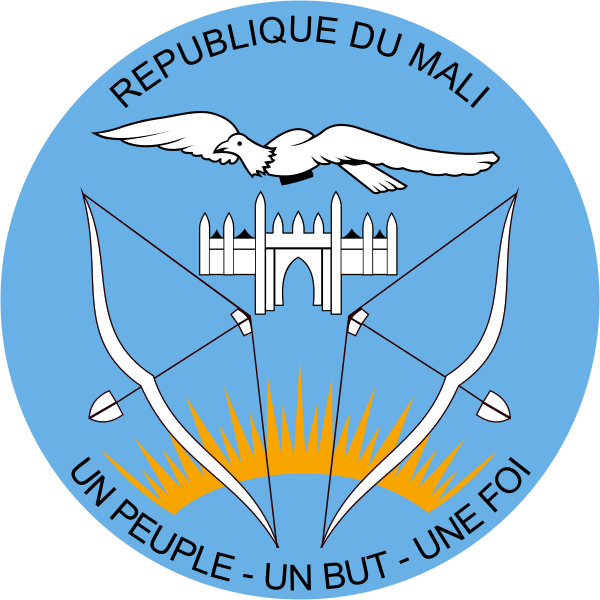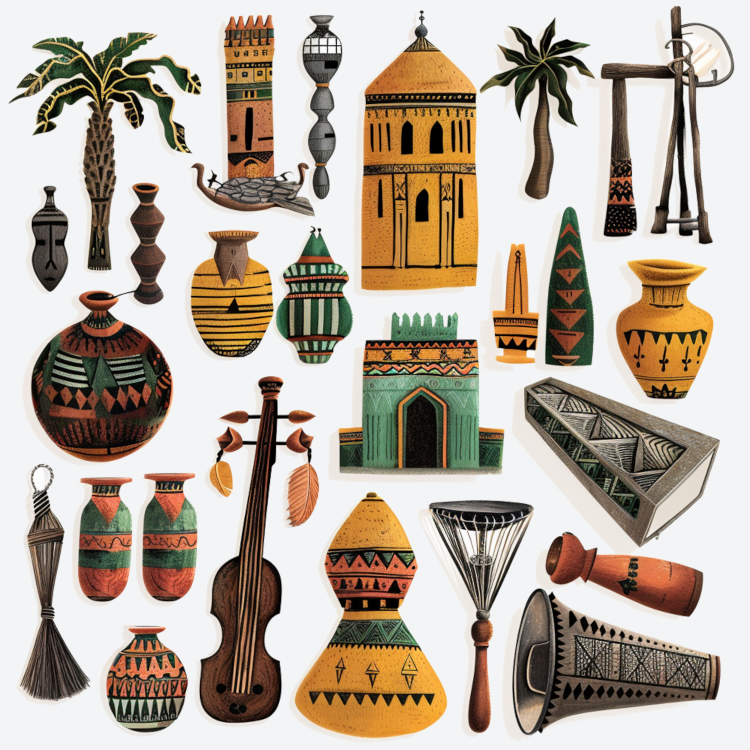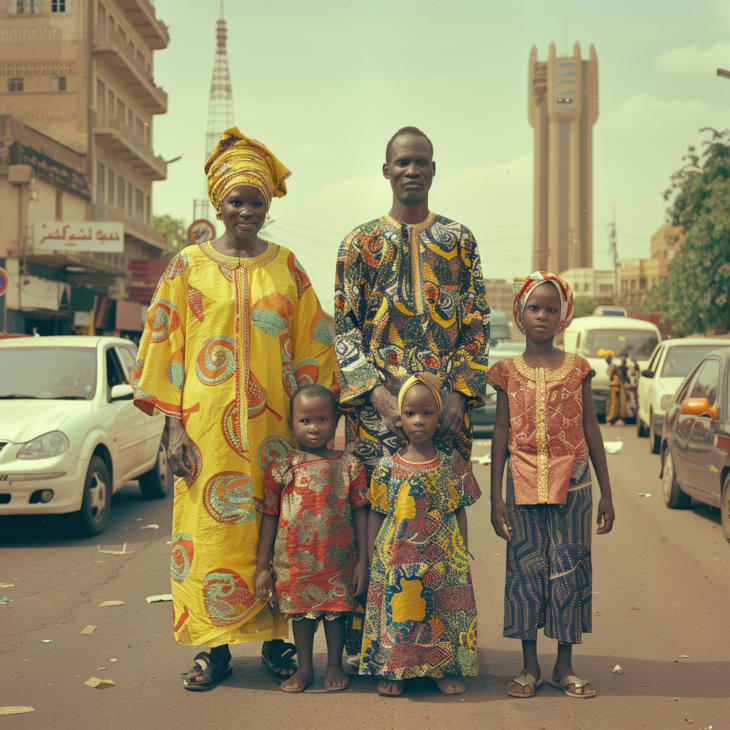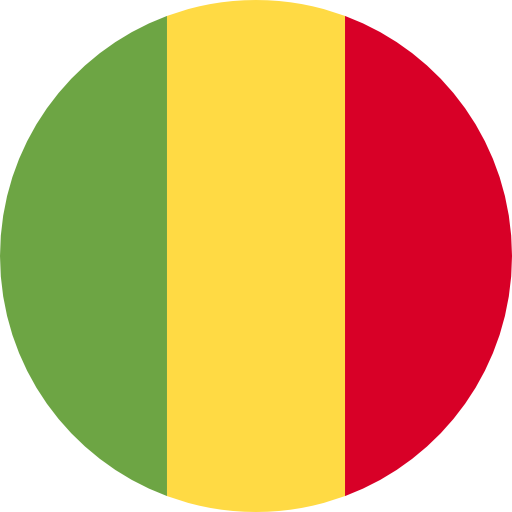About ML

Location
Mali is a landlocked country located in West Africa, bordered by Algeria to the north, Niger to the east, Burkina Faso and Côte d'Ivoire to the south, Guinea to the southwest, Senegal and Mauritania to the west.
Capital
The capital city of Mali is Bamako, which is also the largest city in the country.
Population
As of the latest estimates, Mali has a population of approximately 20 million people.
Area
Mali covers a total land area of about 1,240,192 square kilometers (478,841 square miles), making it the eighth-largest country in Africa.
Official Language
The official language of Mali is French. However, there are also numerous ethnic languages spoken throughout the country, including Bambara, Fulfulde, and Songhay.
Government
Mali is a unitary semi-presidential republic with a multi-party system. The President of Mali is the head of state and government, while the Prime Minister assists in the administration of the country.
Independence
Mali gained independence from France on September 22, 1960.
Currency
The currency of Mali is the West African CFA franc, which is issued by the Central Bank of West African States (BCEAO).
Economy
Mali's economy is primarily based on agriculture, mining, and livestock farming. The country is one of the largest producers of gold in Africa and also has significant deposits of salt, phosphates, and other minerals. Agriculture, including cotton, millet, rice, and livestock, employs the majority of the population.
Culture
Mali has a rich cultural heritage, influenced by the ancient Mali Empire, which was one of the largest and most powerful empires in West Africa. Traditional music, dance, and art are integral parts of Malian culture, with the country being known for its griots (traditional storytellers and musicians) and vibrant festivals.
Religion
Islam is the predominant religion in Mali, with the majority of the population being Sunni Muslims. There are also small Christian and traditional indigenous religious communities.
Landscapes
Mali's landscapes vary from the Sahara Desert in the north to the Sahel region and savannas in the central and southern parts of the country. The Niger River, one of Africa's longest rivers, flows through Mali, providing water for agriculture and supporting local communities.
Challenges
Mali faces challenges related to poverty, food insecurity, political instability, and security threats from terrorism and armed conflict, particularly in the northern regions.

National Items of Mali
Great Mosque of Djenné
The Great Mosque of Djenné, a UNESCO World Heritage site, is the largest mud-brick building in the world. It symbolizes Mali’s architectural heritage, Islamic culture, and historical significance.
Kora
The Kora is a traditional 21-string lute-bridge-harp used extensively in West Africa, especially in Mali. It symbolizes the rich musical heritage, cultural expression, and traditional artistry of Mali.
Baobab Tree
The Baobab tree is iconic in Mali and symbolizes resilience, longevity, and the natural beauty of the country.
Dogon Masks
Dogon masks are used in religious ceremonies and dances by the Dogon people. They symbolize spiritual beliefs, cultural heritage, and artistic craftsmanship.
Timbuktu Manuscripts
The Timbuktu Manuscripts are ancient texts and books, many of which date back to the 13th century. They symbolize the intellectual and historical heritage of Mali, showcasing its rich tradition of scholarship and learning.
Millet
Millet is a staple grain in Mali. It symbolizes agricultural heritage, sustenance, and the traditional diet of the Malian people.
Bogolan (Mud Cloth)
Bogolan, or mud cloth, is a traditional Malian fabric dyed with fermented mud. It symbolizes cultural identity, traditional craftsmanship, and artistic expression.
Niger River
The Niger River is one of the major rivers in West Africa and is vital to Mali. It symbolizes natural resources, sustenance, transportation, and the lifeblood of the Malian people.
Balafon
The Balafon is a traditional xylophone-like musical instrument. It symbolizes the rich musical heritage and cultural traditions of Mali.
Touareg People
The Touareg people are a Berber ethnic group with a significant presence in Mali. They symbolize the cultural diversity, nomadic traditions, and historical significance of Mali.
Griot
Griots are traditional storytellers, poets, and musicians. They symbolize the oral tradition, cultural heritage, and historical preservation in Mali.
Bambara Statues
Bambara statues, often used in religious and ceremonial contexts, symbolize spiritual beliefs, cultural heritage, and artistic craftsmanship.
Shea Butter
Shea butter is produced from the nuts of the shea tree and is widely used in Mali. It symbolizes traditional medicine, natural resources, and economic importance.
Sankoré Madrasah
The Sankoré Madrasah, part of the University of Timbuktu, symbolizes Mali’s intellectual heritage, Islamic scholarship, and historical significance.
Tuareg Silver Jewelry
Tuareg silver jewelry is known for its intricate designs. It symbolizes rich artisanal heritage, cultural identity, and craftsmanship.
Malian Traditional Dance
Traditional Malian dance, often performed during festivals and ceremonies, symbolizes cultural heritage, artistic expression, and social traditions.
Gao
Gao is a historic city and former capital of the Songhai Empire. It symbolizes historical significance, cultural heritage, and the ancient empires of Mali.
Jenne-Jeno
Jenne-Jeno is an ancient city and archaeological site near Djenné. It symbolizes the historical and cultural heritage of Mali, showcasing early urban development.
Sorghum
Sorghum is another staple crop in Mali. It symbolizes agricultural heritage, sustenance, and traditional farming practices.

This anthem celebrates the nation's commitment to liberty, unity, and pride, reflecting Mali's history and aspirations for the future.
The national anthem of Mali is called "Le Mali" in French, which translates to "Mali" in English. Here are the lyrics in French along with an English translation:
Pour l'Afrique et pour toi, Mali,
Notre drapeau sera liberté.
Des aïeux nous vient la patrie,
Des héros nous vient la fierté.
Tu as su te lever dans la paix,
Que tous tes voisins admirent.
Que tes enfants, chère patrie,
Fassent toujours preuve d'unité!
For Africa and for you, Mali,
Our flag shall be liberty.
From our ancestors comes the homeland,
From our heroes comes the pride.
You have risen up in peace,
May all your neighbors admire you.
May your children, dear homeland,
Always show unity!


